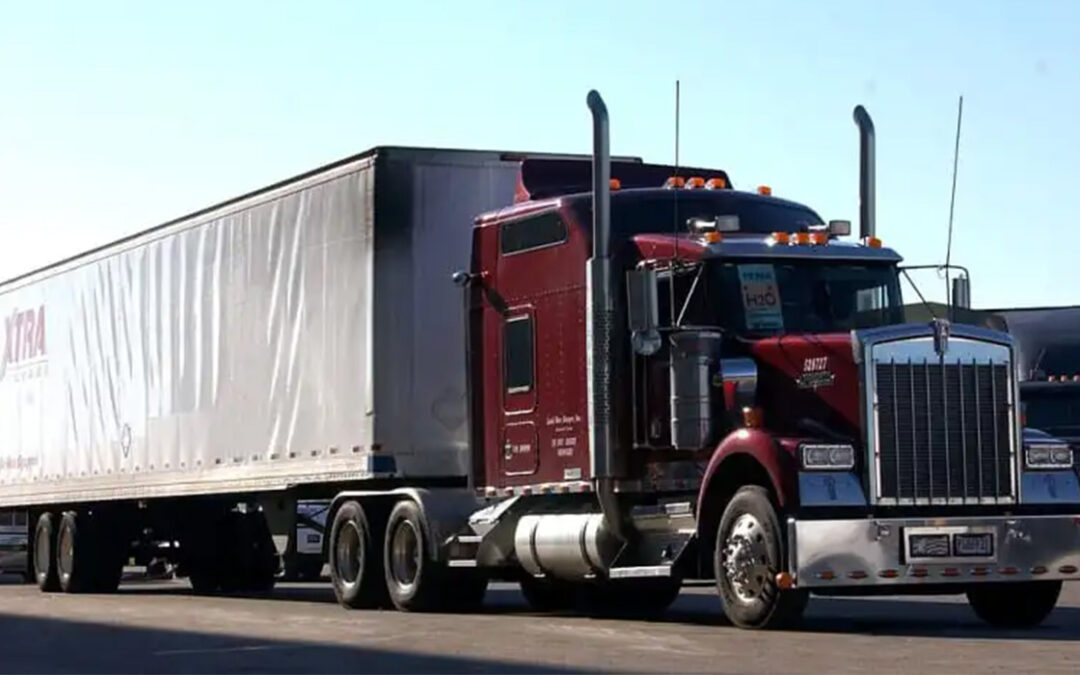
by Amy Foster | Apr 20, 2021 | Auto Accident, Bicycle Accident, Brain Injury, Bus Accident, DUI, Motorcycle Accident, Pedestrian Accident, Personal Injury, Tennessee, Trucking Accident
Distracted Driving
Distracted driving has become an epidemic across the country with Tennessee leading this unfavorable distinction. A recent study identified Tennessee as having the highest rate of distracted driving deaths in the nation, suffering nearly five times the national average of collisions due to distraction. Even with fewer drivers on the road during the Covid-19 pandemic, Tennessee reported over 9,000 distracted driving accidents. Distracted driving is not only texting while driving. It could also be setting your GPS, talking on your phone, eating or even applying makeup. Any activity behind that wheel that takes your attention away from driving is a distraction. A two second text could result in a serious crash causing injuries and fatalities. April has been designated Distracted Driving Awareness Month. It’s a great opportunity to take a minute to evaluate our driving choices and responsibilities. NHTSA has provided drivers with helpful tips listed below.
Tips to Avoid Distracted Driving
- Need to send a text? Pull over and park your car in a safe location. Only then is it safe to send or read a text.
- Designate your passenger as your “designated texter.” Allow them access to your phone to respond to calls or messages.
- Do not scroll through apps, including social media, while driving. Cell phone use can be habit-forming. Struggling to not text and drive? Put the cell phone in the trunk, glove box, or back seat of the vehicle until you arrive at your destination.
Tennessee Law
Tennessee has taken steps to educate drivers and curb distracted driving by passing legislation in 2019 called the “Hands Free Law”. According to Public Chapter No. 412, it is illegal for a driver to:
-
- (a) hold a cellphone or mobile device with any part of their body
- (b) write, send, or read any text-based communication
- (c) reach for a cellphone or mobile device in a manner that requires the driver to no longer be in a seated driving position or properly restrained by a seat belt
- (d) watch a video or movie on a cellphone or mobile device
- (e) record or broadcast video on a cellphone or mobile device
Texting while driving is considered a “primary” offense in Tennessee, meaning law enforcement officers can pull you over without having to witness any other violation if they see you texting. Furthermore, the Department of Safety and Homeland Security has stated that the District Attorney’s Office has the authority to check phone records if distracted driving is suspected after a serious injury or fatal crash. Distracted driving is dangerous, irresponsible and most importantly, preventable. The consequences can be deadly or leave those involved with serious lifelong injuries to deal with. If you were hurt in a crash by a distracted driver, you may be eligible for financial compensation. Contact our office for a free consultation or live chat with us today.

by Amy Foster | Feb 16, 2021 | Auto Accident, Brain Injury, CO Truck, Colorado, Kentucky, Personal Injury, Tennessee, Trucking Accident
Lives are being lost as our government continues to ignore simple safety solutions.
Fatal truck crashes are among the most consequential on the road. Because trucks are so large and powerful, truck drivers and trucking companies are subject to a number of regulations and restrictions, including hours-of-service regulations, rest requirements, and prohibitions on texting while driving.
Common Causes of Truck Accidents
- Speeding
- Overloaded trucks
- Unsecured truck loads
- Truck driver fatigue
- Improperly maintained trucks
- Truck defects
- Drunk driving
- Texting while driving
- Improper or inadequate truck driving training
- Truck driver negligence
As Journalist, Johnathon Salant investigates, the obvious stalling of legislatures to pass meaningful regulations seem apparent and very worrisome. Salant states, “The Federal Motor Carrier Safety Administration in 2016 issued a rule setting standards for driver training. Then the rule was delayed to 2022.” If a truck accident happens because the trucker or trucking company violated trucking regulations, liability can be assessed against the trucking company and/or truck driver. Additionally, the violating party may also be subject to hefty fines and other penalties. If you are on the road, you should be concerned. Over the last decade, deaths in crashes involving large trucks has risen by 36% according to the National Highway Traffic Safety Administration statistics.
Over the years, Queener Law has amassed an in-depth understanding of trucking accident liability cases; as well as, knowledge of the rules and regulations issued by the Federal Motor Carrier Safety Administration. This combination allows Queener Law to better advocate for clients and families involved in fatal truck crashes. Contact Queener Law at (615) 933-9000 to schedule a free consultation if you have been injured in a big truck wreck.
Source https://www.nj.com/politics/2021/01/deaths-in-truck-crashes-keep-rising-as-your-government-ignores-safety-solutions.html
by Amy Foster | Dec 16, 2020 | Auto Accident, Bicycle Accident, Brain Injury, Bus Accident, Kentucky, Motorcycle Accident, Pedestrian Accident, Personal Injury, Tennessee, Trucking Accident
Don’t be THIS Winter Weather Driver…
Driving in winter weather can be challenging enough. Throw in an inexperienced or even an inconsiderate driver – and you may have more than just a “wintry mix”. You could have a recipe for disaster. Getting stuck behind a driver spinning their wheels or not paying attention is annoying – and most of all, it’s downright dangerous. Even though road conditions may cause challenging driving hazards, you are still ultimately responsible for how you handle your car on the road. This means, you need to take extra precautions in inclement weather to avoid causing an accident. Winter driving calls for plenty of patience and in most cases, a little bit of common sense. Below you’ll find ways to spot a rookie winter driver – and most importantly, how to avoid looking like one yourself.
5 Common Mistakes of Winter Drivers
- Speeding: Speeding can get you in trouble anytime of the year. However, speeding in snowy or icy conditions means you’re much more likely to lose control of your vehicle. Driving UNDER the speed limit in inclement weather is smart. Always allow extra time to get to your destination.
- Tailgating: It’s never okay to tailgate. You should always allow plenty of distance for stopping, especially in winter months. Patches of ice are not always visible and can impede your ability to stop.
- Getting stuck: Never attempt to drive through large bodies of standing water or drifts of snow. For your own safety, recognize when to stay off the road all together. It’s helpful to know current road conditions along your route.
- Ice on windows: Driving without full visibility is like driving blindfolded. Always allow time for your car’s defroster to work and always use an ice scraper to clear your windshield ENTIRELY. Don’t forget to clear the snow on your car roof too!
- Driving with high beams: No, high beams do not increase your vision during whiteouts or heavy snowfall. Blinding other drivers is the only thing accomplished here. Don’t be THAT driver.
Unfortunately, other people’s driving can be just as unpredictable as winter weather. Make sure to stay up to date with the most current weather forecasts and plan accordingly. The National Weather Service is a great resource to use on the go! At Queener Law, we hope everyone stays safe on the road. Contact us when you have questions related to an auto accident. We are always here to help you.

by Amy Foster | Sep 10, 2020 | Auto Accident, Bicycle Accident, Brain Injury, Bus Accident, DUI, Kentucky, Motorcycle Accident, Pedestrian Accident, Personal Injury, Tennessee, Trucking Accident
WHOA…Stop Right There!
You have just been rear ended by a distracted driver. Your injuries are typical with this type of wreck and you seek medical attention. Fast forward a few days, you start to get phone calls from the at-fault driver’s insurance company offering you a check. You just need to sign a release. What do you do? Take the money? The offer is pretty good and the holidays are just right around the corner… Attorney Henry Queener recently took on a seemingly simple case that went downhill fairly quickly. In the beginning, the client felt competent enough to deal with the insurance company on her own. This is a common mistake that we see quite often at Queener Law. Below is just one example of how “representing” yourself can go wrong.
Case in Point:
“We recently had a very nice lady call our office for help. She was concerned because the deadline for filing paperwork in the courthouse, also known as a statute of limitations, was only one month away. A heating and air-conditioning company truck had rear ended her at a stoplight. This particular business’s insurance company was offering her $25,000 and was really starting to hound her with phone calls, begging her to take the check. She was starting to feel uneasy. She finally called us wanting to know what her case was worth. Should she just take the $25,000 or hire an attorney? I explained to her that first and foremost, we needed to know the total of all the medical services she has received. She did not know, but she had a guess.
I then asked her who had been paying for the medical care she had been receiving. She told me that the at-fault driver‘s insurance company had used $5000 they had available for medical payments and then her own auto insurance volunteered to use $5000. After that Tricare, which is health insurance for those who have been in the military, and Medicare started paying for her medical care. Boy, was she surprised by what I told her next. I explained that she would have to open an account with both Tricare and Medicare to find out exactly how much they had paid out. By accepting the settlement money from the heating and air-conditioning‘s insurance company (you know, the quick check) she would automatically become obligated to pay Tricare and Medicare back. (Most likely this would eat up the initial offer of $25,000. What about future medical costs, loss of earnings, pain and suffering?)
She then had a dawning of realization. She had been getting letters from Medicare asking about the status of her settlement and did not really understand why she was getting them. Now she understood and it was so clear to her! Medicare was asking about the status of her settlement because Medicare was expecting payment out of her settlement. I then told her the news is worse than that. Her own auto insurance company did not do her any favors by using its $5000 for medical payments. Under Tennessee law, she has to pay them back too. She would’ve been better off if her auto insurance had never paid anything at all! She began to realize that she should have hired an attorney earlier in the process. AND, this is just the tip of the iceberg. There are several other things that have occurred in her case that are not helpful.
Unfortunately, insurance companies ARE NOT obligated to work together for your best outcome. Furthermore, many insurance agents and insurance adjusters often have a very poor understanding of insurance law and even their own insurance policies. She has now hired us. We are diligently working for our client, so that when her case is settled, it will be her money free and clear.” If you are ever faced with the aftermath of an accident, DO NOT attempt to deal with an insurance company alone. Your job is to focus on your recovery, our job is to deal with the insurance companies. Let Queener Law work for you. Contact us for a free case evaluation.

by Jennifer O'Connell | Aug 14, 2020 | Auto Accident, Bicycle Accident, Brain Injury, Colorado, DUI, Motorcycle Accident, Pedestrian Accident, Personal Injury, Train Accident, Trucking Accident, Workers' Compensation
Brain Injury Survivors: Leaving Victim Hood Behind
Over the years, Queener Law has been trusted to work with brain injury survivors across the country. The Queener Law family has our own personal experience with brain injuries, and we have felt our own great losses and fought through our own great survivals. We understand what it means to have your life forever changed in an instant by a head injury. We also know what it means to feel like no one understands. For brain injury survivors who are suffering because of the negligence caused by someone else there are two major phases of understanding beyond the hurdle that all head trauma survivors face – relearning your life with your family and friends. For victims of negligence, you also have to compete with the medical treatment phase and the litigation phase.
Phase 1: Medical Treatment Phase
You know your body better than anyone. Even doctors. Doctors may have a list of letters after their names, and they may be at the top of their fields. But unless they are specifically trained and experienced in working with brain trauma, no matter how hard they try, they just won’t get it. They can run every test in the world, prescribe every anti-anxiety or anti-depressant medication, send you to therapist after therapist, or tell you to get more rest. And all of those things may take the edge off. But does that make you feel like you again? You need a specialist. You need someone who will listen. And someone who will understand. You need help finding the right medical team that can hear what you describe and allow it to set off light bulbs in their minds from their experience. You need the team that is equipped with the latest technologies, therapies, and treatments for the specific trauma you have – a team who will treat the injury, not the symptoms.
Specialists in traumatic brain injuries should also know that you are not the only person they should hear from. Sometimes you don’t even know how to articulate what’s going on or how you have changed since your injury. True brain injury specialists know that they must also reach out to your family, your friends, your coworkers, even your favorite coffee barista or mail carrier to get a full and complete picture of the uniqueness of your life. Only then can they craft the proper treatment plan for you.
Phase Two: Litigation
The second, and often most trying phase, negligence victims face is the litigation phase. Think about how difficult it is to get through to your family, friends, and physicians about your injuries. Now try to express how you feel to a suit hired by the person who is trying not to be held accountable. Or to a box full of strangers you are asking to award you money for all you have gone through and the fight you have ahead of you. It cannot be understated the importance of having a team behind you who has learned through experience how to articulate to the opposition the concrete changes you have experienced, to paint a clear picture of what your life used to look like and hang it next to one of what it looks like now.
Queener Law has decades of experience working with families as they navigate this phase. We have helped them find the right medical teams and helped them learn how to express themselves to their community in a way that sets them up for the compensation they require to face their future. We have also faced these same phases in our own lives. There is no part of this process that we have not experienced on a personal level ourselves. What makes us uniquely capable of working with brain injury survivors is that we live amongst them every day. Some of us grew up with them, some of us are growing and learning with them now. We will not ask you do to anything alone, and we will not recommend to you anything we have not experienced ourselves. You are a negligence victim and a brain injury survivor. Let us help you become a survivor of both.

by Jennifer O'Connell | Mar 25, 2020 | Auto Accident, Bicycle Accident, Brain Injury, Bus Accident, Colorado, DUI, Kentucky, Motorcycle Accident, Pedestrian Accident, Personal Injury, Tennessee, Trucking Accident, Workers' Compensation
Injuries and Coronavirus
It is understandable that people’s thoughts are elsewhere in times like these. But when our minds are not on the roads or on the safety of ourselves and others, we heighten the dangers around us. While we’ve been asked to stay at home, we are not all so lucky to be able to hunker down. Here are some tips on how to deal with crashes, falls, and other injuries and coronavirus.
1. Keep Your Distance
“Social distancing” is a phrase we’ve heard enough times lately that we are hearing it in our sleep. But that truly is the best way to stem the tide. When you are in a wreck or if you suffer a fall, you should still remind yourself and others to stay at a safe distance. Unless you are in need of immediate medical assistance, make sure to ask witnesses and helpful bystanders to call the proper authorities to assist. If you are in a crash, you will need identifying information for the person that caused the collision. Please be sure to do so at a safe distance.
2. Get Help Immediately
As is always the case when you suffer an injury, immediate medical evaluation and care is essential. This does not change in the times of COVID-19. Hospitals and doctor’s offices are over crowded. Also, these places are full of people being tested for the exact virus we are hoping to avoid. You do not want to add illness to injury. However, many medical providers are assisting injured parties remotely. Consult a physician about your injuries from the comfort of your home. However, as always, if you are severely injured, get yourself to emergency care right away!
3. Take Photos
If you are physically able, or if a friend or loved one can assist, take pictures of anything and everything pertinent to your injury. Because the authorities are focused on coronavirus and keeping our communities safe, they may not be available to respond to the scene of a crash, fall, or other injury. It is vital to your financial recovery that you document the details on your own or with the help of loved ones.
4. Call Us Immediately
After you have cared for your injuries and the injuries others, call us. We can take the reigns and handle the investigation and insurance companies for you so that you can focus on what’s important. We remain fully functional and fully staffed during this crisis because you are important to us. We will stay at the watch to help with your needs. We are here to help you navigate the brave new world of injuries and coronavirus. Hopefully this is a short phase of our lives. But while it’s here, so are we.





